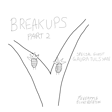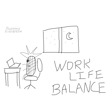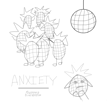Become a Creator today!Start creating today - Share your story with the world!
Start for free
00:00:00
00:00:01

#7 - Self Judgement and Pain
Recommended
Transcript
Introduction and Reflections on Munir Niazi's Poem
00:00:00
Speaker
this poem was written and performed by Munir Niazi I translated to English but I can't do the original justice so I'm adding the original clip at the end of the episode I always wait too long to do everything when there's something important to say when there's a promise to keep to call for her to ask for her back I always wait too long
00:00:31
Speaker
To help someone, to hold my grieving friend close. To travel all roads to meet someone, I always wait too long.
00:00:43
Speaker
To fall in love with the journey of changing seasons, to keep someone in mind, to forget someone, I always wait too long.
00:00:55
Speaker
To save them from grief before death, Reality was something different to go tell her that.
00:01:04
Speaker
I always wait too long to do every single thing.
00:01:09
Speaker
I always wait too long.
Season 2 Launch and Emotional Themes
00:01:37
Speaker
evening, everyone. Welcome to the debut grand opening of Pineapple Bunt Rotation Season 2. If this is your first time tuning into this radio broadcast, we offer you nothing but the finest of the finer things in life.
00:01:52
Speaker
to sit back, relax, and enjoy some of our easy listening emotional classics like guilt, how you do self-hatred, judgment, deep talk, and personal political upheaval.
00:02:06
Speaker
how do you do Coming to you live from the West Coast, we're your hosts, Ahir and Davel. We'd like to shout out all of our regulars for sticking with us through the long waits in season one.
00:02:19
Speaker
As you can imagine, substantive conversation isn't possible without 100% fresh, all natural emotional turmoil to deal with. We appreciate the patience and support of viewers like you as we're hard at work causing new problems to deal with in our lives.
00:02:35
Speaker
We hope you enjoy this season as much as we enjoy discussing our problems instead of living them. Now, on with the show.
00:02:48
Speaker
everyone, welcome back to season two of Pineapple Rotation. i know it's been been a minute I know it's been a long break since the last time, so thank you for your patience. Thank you for bearing with us.
Unusual Times: Personal and Political Reflections
00:02:59
Speaker
If this is your first time joining us, we are a podcast aimed at sharing experiences from our lives and starting conversations about different problems we face in our 20s or that just go unnoticed.
00:03:10
Speaker
um We just don't talk about it enough. It's been a weird few months, right? Oh, God. one of the weirdest few months of my entire life yeah so many ways just like personally politically like everything i've heard the word tariff more than i've ever wanted to hear in my entire life yeah what the fuck i feel like i feel like i'm numb to the news now like it doesn't even like like every day just feels like a different like night circus act going on yeah yeah
00:03:46
Speaker
I don't even have it in me anymore to like emotionally you react. It's just like, oh God. I feel like the word realism has less meaning. Yes.
00:03:56
Speaker
Especially with Elon. What the hell is this man?
00:04:01
Speaker
I don't understand. I don't think anyone knows, including that man. If you just take Elon Musk, Kanye, and Trump, if you just focus on those three people, it makes you question everything you know about reality.
00:04:13
Speaker
Oh god, I feel like I've just like stopped paying attention to Kanye at this point. I just can't do it anymore. Did you see his stuff about Elon stealing his Nazi swag? was like, i was I was a Nazi before it was cool.
00:04:29
Speaker
Yeah, I really don't understand sometimes. But I guess the question becomes like, how do we orient ourselves in a way that I mean, one approach, which is like, I feel like a lot of people have done, especially a lot of people who are left leaning and just kind of shut down.
00:04:44
Speaker
Yeah. You know, and just stopped caring or thinking about anything. Yeah. And it definitely comes from a place of privilege where a lot of the problems that are coming up don't really directly impact us.
00:05:01
Speaker
Like for me personally, i don't think anything that's happened in the last few months are going to make my day-to-day life that much different, right? So it's easy to be able to just kind of block it all out and pretend it's not happening.
00:05:16
Speaker
Yeah.
Disengagement from Politics and Focus on Personal Expression
00:05:18
Speaker
I mean, I think it's like, partially like yeah we are obviously like insulated for a certain extent because of our privilege i do think there's an element of denial because like i think for now we're insulated but i think if like shit really gets bad it's like like we literally have like white supremacists in the white house right like that like there is only so long we will be insulated for that if like things get as bad as they seem like they're gonna get um but i do think there is another aspect where it's also just like
00:05:49
Speaker
What the fuck do we even do, right? Like, what can we actually, like, realistically do to change that right now when, like, all the level levels of power are controlled by these people, right?
00:05:59
Speaker
And, like, um I was actually talking to Karthik about this earlier, where in Russia, like, as, like, democracy started, like, faltering, there was this idea of, like, people living in exile at home.
00:06:14
Speaker
So it was like for intellectuals and like people like that, um they sort of disengaged with politics because there was nothing they could do about it and just focused on like art and focused on their families and like focus on these spaces where they still could express themselves freely and things like that.
00:06:30
Speaker
So I almost feel like We're sort of moving towards that point where like as a mixture of all of these things like people are just sort of like hunkering down and trying to find like the comfort and freedom that they can like where they still can, you know?
00:06:46
Speaker
That makes a lot of sense actually. That's I feel like yeah, you're right. We're moving in that direction.
Local Community and Political Activism
00:06:50
Speaker
Yeah. But I guess what we can do is just keep being true to whatever it is that you know we believe in, right? And just helping our communities, being kind to people. Yeah.
00:07:00
Speaker
Doing what's within our control on a smaller scale, you know? Like on ah on a local scale around us. That's all we can do. Preserving humanity where we can. And obviously, like, obviously we need, the world needs radical people, right? Like change doesn't come without radical people ever.
00:07:16
Speaker
But at the same time, we can't expect people to take on that role. but But what you can do is focus on your own communities. Yeah. And like in terms of like politically, like what is necessary? Like, I mean, I have a lot of thoughts on this. Like, like as someone who's like very plugged into like politics and like thinks a lot about like what would be necessary to like fix things.
00:07:36
Speaker
I really think there is a lot of effort needed on like the local scale to like build up new institutions and like organizations to like really challenge what is happening politically too. So Yeah, I mean, it's like a mixture of everything. It's a mixture of needing to like just preserve like the humanity we can, to preserve our communities, and like just support ourselves on the local level.
00:07:59
Speaker
The one good thing is like the the United States is pretty like federalized, right? The local level, especially in like blue states and stuff, will be pretty secure. So we need to make sure culturally and like politically we're preserving what we can here.
00:08:10
Speaker
And also that process of building even larger political change will take like a long time of like building up like organizations and stuff so i do think there is some hope there and like i do think there are like paths forward for like how we can change things but yeah i mean there's only so much we can do and i think it's a very slow very like time consuming painful process so Yeah.
Modern Politics: Scandal vs Substance
00:08:36
Speaker
I want to i want to clarify, like the issue is not that the current government is conservative or red, right? like That is far from what the issue is.
00:08:45
Speaker
Yeah. I mean, yes, obviously, like as a person who is leaning left, like you want to see more. It does feel a bit regressive when we talk about things like, literally like about abortion, right? like Let's say like abortion stances or you know stances on...
00:09:02
Speaker
how our money should be used in the government whether we should spend more on defense like whether you know all of these things like taxes right we're not talking about any of those things right like yeah those things i understand can come from different ideal ideologies like whatever it's just the way things are run right now like every day the ni the new headlines i hear are just like crazier than the last you know like it's it's like oh i want to buy greenland oh canada become a state oh like just the most fucking like first random like unhinged things you can think of yeah it's no longer about like like it's not even about like political differences it's just about sanity
00:09:46
Speaker
insanity Yeah, it's like
Leadership's Impact on Future Generations
00:09:50
Speaker
they we're trying to pressure Ukraine into giving us all of their natural resources in exchange for our support.
00:09:57
Speaker
and Not even that, we're not even guaranteeing anything. Trump is literally like, give us 50% of your natural resources. Why? Maybe it will protect you. And the way they're doing it, like yeah like there was no talks of this. They just showed up with that document.
00:10:13
Speaker
Yes. At the negotiation. Yes. And just tried to pressure him into signing it. What do you mean, bro? Like, we're just playing a bully at this point. That's literally what it is. Like, Trump literally said, like, oh, I'm tired of people telling me about Putin's war crimes.
00:10:31
Speaker
Like, like, Ukraine has no, like, cards that they hold. Which, yeah, no shit, because they literally got invaded and are being destroyed right now. But that's all he gives a fuck about. What's in it for him?
00:10:42
Speaker
Anyways, we should move on. But. yeah And we got to get it out. It's just like, what kind of world do you want your kids to grow up in? Right? Yeah. Like these are the leaders that they're looking up to and modeling themselves after. Right?
00:10:56
Speaker
Yeah. Do you want your kid to see the highest man in power cry when he loses an election and tries to overthrow the whole fucking government and throw a tantrum? Or do you want someone who, you know, can gracefully accept that they lost?
00:11:10
Speaker
You know, it's like, yeah it's like the most simple human thing that you want in a person, right? Yeah. Yeah. Like not even like just losing an election, like the highest person in power literally like being convicted of rape.
00:11:27
Speaker
ah in civil court. and yeah like That's why I say it's not about like political differences to me at this point. It's just about like humanity. like What kind of world, like the the character of these people, what kind of world we're creating for like the future generations. like youza yeah Do you want a rapist leading your country?
00:11:46
Speaker
Yes. Like that's literally what it comes down to, right? Anyways, it's also been interesting. It's been a period of transition, you know? Yeah.
New York Life and Stability
00:11:56
Speaker
Obviously politically, like we just talked about, but like also, I mean, in my personal life, I think. yeah And you too, right here. But ah yeah the crazy thing is I feel like we are always transitioning from one place to another, right? Like that's how like ah some with the sum of it, which becomes life. It's just the rate at which you're transitioning, the rate of change.
00:12:17
Speaker
Right. The rate of change changes. Fair enough. So, Ahir, what's going on? Do you want to go first before I go into a full-ass rant? Because i feel like i have a lot to talk about here.
00:12:29
Speaker
I've been, as I kind of mentioned, I've been in an interesting period of transition. Like, I... I'm finally done with a lot of my traveling that I've been doing, you know, hopping around place to place, living literally like, I feel like I was living out of suitcase for so long.
00:12:44
Speaker
And while really great experiences, met a lot of really cool people in a lot of really, you know, a lot of interesting places, I am. very much ready to build something in one place. you know So I'm very thankful that I was able to move back to the city, back to New York. I mean, move into my apartment, set it up, start routines. I think that's the key difference. like I'm building my life around routines, yeah which I wasn't before. And I feel a difference. That's what it's been about for me, at least.
00:13:16
Speaker
Being patient as I set up those routines because they don't form overnight. And you can only really do one thing at a time. So it's very easy to get frustrated and blow it all up.
00:13:28
Speaker
But you have to hold it together for a while. Also enjoying yourself. you know It's not just about patience. Not obsessing over getting it right the first time, getting a perfect. you know just yeah But yeah, that's been that's been a cool process for sure.
00:13:44
Speaker
All right, yeah I'll let you go into your rant now.
Post-Breakup Self-Discovery
00:13:47
Speaker
Yeah. I mean, I feel like... I am in a pretty similar place, but through a very long and circuitous pathway.
00:13:57
Speaker
So I ended up breaking things off with my ex, who I had been with for almost seven years at that point. um so that, like, I've really just been dealing with the fallout from that and like just processing everything that came out of that.
00:14:13
Speaker
I mean, that's been an extremely long and extremely painful process because I think at this point, I mean, I don't want to say anything for her. Like, there there was room to grow for both of us, and so I've really just been focused on carrying forward the lessons from that, like working on myself, like,
00:14:33
Speaker
working on like understanding why i did certain things that I'm not particularly proud of, just understanding like why I found it so hard to deal with that situation in like the most healthy way.
00:14:44
Speaker
And really, yeah, just like trying to own up to and carry forward a lot of those lessons that I've learned through that experience. So yeah, after things ended between us, I moved i've been i moved into a new place. Like I have a really nice setup. Like I've been like getting a lot into interior design like it's always something that i wanted to do but i feel like for the first time like i'm actually executing those ideas that like i've had in mind i'm very focused on like building up my life again um on my own um focusing a lot on like what you said like just building up routine and structure just like those fundamentals um
00:15:21
Speaker
Yeah, because I feel like I sort of lived in like a very disorganized way before. Like I sort of dealt with things like moment to moment, like dealt with things like more immediately based on my emotional reaction, things like that. And I've really been focused on like building up structure, building up stability in a way that I've never really had before in my life.
00:15:40
Speaker
So that's been really amazing and exciting because, yeah, I just feel like I have a level of consistency and like clarity about my life and myself that I didn't have before.
00:15:51
Speaker
And yeah, like very focused on like learning, like growing, like working on myself. And yeah, just like getting more in touch with myself, like what I want from my life, um what I'm capable of, like what I need.
00:16:04
Speaker
And yeah, like like I said, like getting more in touch with myself and like my own identity. Like I've been experimenting a lot with like a lot of different things. Um, I got the full crash out treatment. So I got bangs and my ears pierced.
00:16:16
Speaker
I got, uh, nice. Yeah. I got, it looks good by the way. Thank you. Thank you. I i know I've been, I've been thinking ah right now my hair is a little trash, but in general, like I've been aiming to like grow my hair for a while and I really think it suits me.
00:16:31
Speaker
Um, yeah, I've been, uh, I got like a ukulele. So I've been like practicing that a little bit. I've been getting more into hobbies, like photography and stuff. Like I said, like interior decorating and design, like that's like a good way for me to like keep in touch with like sort of like my artistic impulses, like writing more, um doing things like that. And like I said, I find a lot of like satisfaction in just like those like everyday activities that I really did before. Like I feel like before I used to see things as like,
00:17:01
Speaker
meal prepping and like, yeah, things like that as like obligations. And I've really been trying to focus on seeing them more as things I can find like peace and like comfort in, like just relating to my own life and like the fundamental building blocks of my life in a more healthy way um that I can find like comfort and satisfaction in.
00:17:19
Speaker
So Yeah, I mean, pretty much my entire life, I feel like it's like pretty, ah pretty, like it's transforming a lot. And there's been a lot of like growing pains along with that. I'm not going to say it's been easy. I mean, there are a lot of like, even now, like every week, like I spent couple of hours, like just crying about everything that's happened, like about the breakup, just about, yeah, like just coming to terms with things about myself.
00:17:43
Speaker
um There's a lot of pain that comes with that, but I think I know I'm on the right path. I know that there's a lot of growth ah that I'm very happy about and that I've been wanting for a long time. Even now, the problems that I'm dealing with and that I'm working on were always there. It was just that in the past, I didn't really give myself the mental space and like the bandwidth to deal with them.
00:18:06
Speaker
And I know as I'm working on them, I'm getting to a much happier place, even if I'm not necessarily the happiest all the time now. So it's been a long, very eventful, but very like very painful, but very satisfying process.
Identity and Self-Awareness After Relationship End
00:18:21
Speaker
Yeah, that's a lot. That's the, why is this shit so traumatic, bro? Why are breakups so traumatic? I mean, that's kind of like, that's almost like the gambit you make, right? It's like you're integrating your life, like so deeply with someone because you care about them. But at the same time, if things didn't work out, it's almost like Losing a part of yourself, especially when you're in a rebuild mode, you know, like I feel like this is around the time where you really want to get your life together and focus on things that you just didn't have the bandwidth for it before or you were ignoring or, you know, whatever it may be.
00:18:54
Speaker
Let the heart break break you, you know, so that you can really, really start again. And that process is hard and long. and but I feel like what comes out of it is so beautiful. And like, oh, yeah, I'm so much more at peace with my life, literally just the way I live my life, you know, that I won't say it's worth it, but because it's fucking terrible, but maybe almost worth it to go through.
00:19:19
Speaker
Right. No, I got you. Yeah. When you're in a relationship because you have so much invested in that, it's like, yeah, like it's difficult always to like see yourself and like what you really need clearly because you're so afraid of like that loss.
00:19:33
Speaker
And like, yeah, it's just hard to center yourself when you're almost incorporating someone into yourself in your life in that level. And it's inevitable, right? Like, I mean, you you build your life around your needs and the other person's needs. And because, like, if you get together at a young age and maybe you don't have ah maybe you don't have a kind of sense of self and they don't have one, you kind of build around each other's needs and a lot gets ignored.
00:19:58
Speaker
A lot gets ignored. It almost feels like it's necessary to go through this process. but I don't want to say that because at the same time you I see, I see some other couples in my life that have been together for so long and very happy and, you know, they're on their way to get married and it's a beautiful, beautiful thing.
00:20:16
Speaker
So I guess everyone's journey is different, right? Oh, a hundred percent.
00:20:22
Speaker
I mean, it's almost like what you're saying about how like, you have to center your needs and center the other person's needs. It's like, it no longer becomes about like you and the other person, right? It becomes about our needs, like us together.
00:20:36
Speaker
And so that can lead to a lot of confusion about like, what do I actually need as a person? Like, yeah what am i really comfortable like giving up? And like, what, um what is feasible for my own life?
00:20:48
Speaker
And I think like, like you're saying, like, for some people, like it works out, like they know, like, Their part, them and their partner happen to click together, like maybe they have just a lot of clarity about like what they need from their own life. So that ends up working out.
00:21:02
Speaker
But I think for a lot of people, like that's why early relationships don't end up working out is because that's not like an easy thing to figure out what you really need, like, especially when you're so young.
00:21:13
Speaker
And like, I mean, experience is the best teacher, right? Like sometimes you can't, you can't know what you need until you're at that point where you like, when you come through that pain and like you really realize like, okay, like I can't give this up.
00:21:29
Speaker
Like I really do need this. Yeah. And at the same time, I feel like on the other side, you know, because i after my last breakup, a big theme in my life has been, how can I keep my heart open as open as I can while being grounded in myself?
00:21:43
Speaker
Yeah. That's been a cool, interesting, scary process. When you, when you put your heart on the line like that for the first time, it's like, and it doesn't work out. Like, how do you trust yourself to know like when the right time is again? Like, how do you know, like when you're,
00:22:00
Speaker
Yeah, yeah. I definitely know what you mean. It's fine. We're not going to do a... we're not That's not the episode we're doing today. Breakups for... But honestly, guys, if this is your first time listening to us, like everything in the last five minutes, maybe ten minutes, if you heard all that, you can skip the breakups episodes.
00:22:21
Speaker
No! The summary. You can skip about three and a half hours worth of content. No, no. You're doing it wrong, bro. You have to tell people. If you're more interested in hearing about this, go back to our first videos. My bad, my bad.
00:22:36
Speaker
My bad. Yeah. You got to plug this shit, bro. Yeah. It's not like we're making any money on this, bro. It's at ones of sense We'll get ones sense.
00:22:51
Speaker
I'll start plugging back to previous episodes when we start being able to monetize views. Yeah.
Reducing Self-Judgment for Clarity
00:22:58
Speaker
ah
00:23:01
Speaker
Until then I'll spare the people. So here, so coming back to, you know, obviously like this period has been fucking you're insane in terms of the amount of change like that has happened, right, in your life.
00:23:14
Speaker
Like, what are kind of some of the things that you're focusing on in terms of how you're living your life, you know, day to day, how yeah you're interacting with yourself, like whatever whatever it may be, like where is the biggest change coming from?
00:23:30
Speaker
It's hard to, I guess, like pick one thing is the biggest, but I guess like if I had to start somewhere, it's really on like self judgment and like, giving up a lot of self judgment in order to see myself clearly.
00:23:43
Speaker
Because like, I think in the past, like I was so focused on living the life that I should like judging everything I was doing, making sure I was doing the right thing, making sure i was seeing things in the right way, that I had the right beliefs, that I had the right perspective, that that really blinded me from understanding who I really was.
00:24:04
Speaker
Because That self-judgment kept me from being honest because I had so much emotionally attached like to those judgments and to those self-evaluations.
00:24:16
Speaker
So really, i feel like now that I'm on my own, like I've really just been focused on seeing myself clearly, seeing the world clearly, seeing things around me clearly.
00:24:26
Speaker
Like, I thought understanding the world was, like, seeing things in the right way and having the right beliefs versus, like, really just trusting myself to, like, perceive things as they are.
00:24:39
Speaker
And, like, to a certain extent, like, that's very connected to, like, being present. Just, like, being mindful and, like, letting letting things be what they are as instead of, like, trying to forcefully to like determine them and I think like that is very related to like a lot of the stuff that we were talking about I think like when we were talking about like breakups and like
Balancing Authenticity and Insecurity in Communication
00:25:01
Speaker
like seeing yourself and your needs clearly like I think like the reason what makes that so hard is because like you sort of have so many ideas for your relationship. You have so many ideas for who you should be in like the context of like the life that you should have based on those things that it really prevents you from being honest with yourself, um, about who you are and like what you really need because you have so much emotionally invested in those things.
00:25:30
Speaker
And so, yeah, I've really just been focused on letting me myself be what I am. Um, and seeing that for what it is, regardless of like how painful or how hard or how scary or how like, yeah, just like how bad I may feel about that in the moment.
00:25:49
Speaker
So when you say like, when you say seeing the world for what it really is, like, what does that mean? Like, can you give an example of that? Like, I guess a good example, like a simple example is sort of if someone's like telling me about their life or they're just telling me about something um that's been happening in their day.
00:26:05
Speaker
I feel like I was so focused on like, how do I seem to this person? Like, am I saying the right thing? Am I saying something? Am I saying the right thing to make them feel better? Like, how are they going to perceive like me and what I'm doing? Like, should I say like what I have in mind?
00:26:20
Speaker
I was so focused on my own judgment, the things I was saying, what that meant about me, how that person would see me, that it prevented me from fully understanding like the impact that my words would have on other people.
00:26:33
Speaker
And also from fully understanding like how they really felt about me, because when you're so focused on your own self-perception about like whether how you seem to the world, whether you're doing the right thing, like when you're so focused on your own preoccupations of your anxiety and stuff like that,
00:26:53
Speaker
projection of your own self perception can end up overriding like the reality of how the other person feels about you and what they think about you of what your words are doing to them.
00:27:04
Speaker
And so like in order to fully, you can't really understand what someone needs. And like the effect you're having on them, unless you're able to let go of your own like fear and your own self judgment allow yourself to clearly understand like what they're thinking about you instead of like allowing your own emotional response and those projections to like cloud your vision, if that makes sense.
00:27:31
Speaker
Yeah, I think basically what you're saying is like we create these like weird abstractions, right? just We're just talking about communication, right? Like conversation with someone. Like we create all these abstractions on top of the reality of what's happening, which is just you are expressing something to someone else, right? They're expressing something to you.
00:27:50
Speaker
But we create these abstractions on top of it, which is just like, am I seeing the right thing? Yeah. So that that person puts me in a certain light, you know? Exactly.
00:28:01
Speaker
takes it a certain way so that you seem amicable, you seem knowledgeable, you seem nice, you give them exactly what they need so they feel better.
00:28:12
Speaker
Like all of these things yeah and really you just want them to like you right? like yeah like It comes from an insecurity whether this person likes you or not and the way we combat it is we add all these games on top of it right there's all these youtube videos and and podcasters and you know how to communicate like what to say things to say to get people to respect you like you yeah how to win a conversation how to get what you want you know when really if you strip everything away and you just be yourself yeah that's the purest way to communicate with someone right
00:28:51
Speaker
And you have to know and be at peace with the fact that they might not be ready to receive your energy, whatever it is you want to say or whatever whatever it is that you're saying.
00:29:03
Speaker
And that comes from their own preoccupations and yeah predispositions about where they are in their life. You know, how true are they to themselves? They could be the kindest person in the on the planet, but they might not be ready to hear what you have to say.
00:29:17
Speaker
Or maybe your energies don't match. I think what it is we're so scared of rejection yeah that we create all these abstractions to make sure that we're like, and it really ends up hurting us.
00:29:29
Speaker
Yeah, yeah, definitely. It's about letting the be moment be what it is, as opposed to trying to control the moment and make it into something. And like, Like you're saying, like, I do think it is fundamentally out of a place of like insecurity and wanting to control.
00:29:45
Speaker
Control how people react to you, like control how people see you, control like what they think of you. When like the reality is like, you can't please everyone, right? You need to trust the people who are right for you to like accept you as you are.
00:29:59
Speaker
Yeah, like you can't control how people see a beauty see you. You can't control how they're going to feel about what you say. And like all that trying to control that is going to do is going to exhaust you, is going like prevent you from having confidence in yourself because you can't trust your own natural instincts.
00:30:17
Speaker
Like you're going to be so focused on like trying to like overanalyze like every single moment. And yeah, you're gonna take every situation where like someone isn't ready to listen to you or isn't like willing to like you, like you're going to take that like as a personal like reflection of like your value as a person and like not to understand, like you're not gonna be able to maintain that perspective of like, okay, like this person, maybe this person just doesn't gel with me.
00:30:46
Speaker
Like maybe this person just isn't in the right place right now to like listen to what I'm saying. but i have to trust that i'm doing my best and like i'm being true to myself and that i can only like i have to be okay with like what is within my control like and this is again like very related to like a big thing i've been thinking about which is the ego like and like accepting our limitations as like people because i think like fundamentally it comes from like a place of anxiety about like our limitations about the fact that we can't control all of
Self-Awareness Practices and Meditation
00:31:20
Speaker
those things.
00:31:20
Speaker
And so we desperately try to cling to the illusion of control, even though all cling to that illusion does is make us more unhappy. Some people get really good at playing that game, you know?
00:31:33
Speaker
But really, like, you've got to ask yourself, like, is that the life you want to live? Where you're constantly playing a game trying to get people to like you? Yeah. Even if you're good at it, like, that's not the life you want to live. Like, there's no peace in that life.
00:31:47
Speaker
Especially when it comes to, like, dating. Like, so many guys, they obsess over the right thing to say. Yeah. They're playing a game, basically. And it's like, if you learn how to express yourself and be confident in that expression, that you will find someone that matches your energy.
00:32:06
Speaker
I promise you that.
00:32:09
Speaker
But you have to learn, you have to do the hard part to learn how to express yourself first. As someone like, like right now, like I feel like i can, i am like very likable to like anyone. Like I can just like make casual conversation. yeah I'm just generally like pretty likable.
00:32:24
Speaker
But the fact that I got to that point where people liked me didn't actually make me feel any better about myself. That was just a reflection of my own insecurity. I needed to be liked by anyone. And then Even though I got like very good at it and like most people did like me, all I would fixate on was that tiny percentage of people who didn't.
00:32:43
Speaker
I feel like really what I've been moving towards is like a realization of, yeah, like I genuinely do enjoy like talking to most people and I do enjoy learning about their lives, understanding. like i enjoy like contributing to people's lives through my conversation, being able to like be an enjoyable person to other people.
00:33:01
Speaker
But at the same time, i need to accept the fact that like, I can only do so much that there are always going to be people who don't accept me. And I can't focus on making sure people like me.
00:33:12
Speaker
I need to focus on my own enjoyment and my own satisfaction in that process. Otherwise, like, yeah, like it's just going to intensify that anxiety. It's going to intensify like my own like feeling that I can't have trust and security on myself as a person if I don't constantly like think, manage how I'm interacting with people, they're not going to be there for me.
00:33:34
Speaker
It's a process stripping that all all that away. Being able to clearly differentiate between when am I talking to this person because I'm actually enjoying the conversation versus when am I talking to this person because I feel like I need to be likable and I feel like I need to be on, you know?
00:33:50
Speaker
Like I feel like even being honest with yourself about that can like be very hard when you have a lot of self-judgment and when you have so much of your ego invested in of this. It's hard to break out of any stream of thought that we have because we identify with it, right? yeah That's who we are. That is the voice, right?
00:34:09
Speaker
That is our voice. So that's where i think some of these concepts come from, right? Like about separating yourself from that, thinking about all your thoughts as clouds, right? Which is like... yeah One of the most simplest techniques that you learn in whether it's therapy, whether it's Buddhism, imagining that you're the sky and not the clouds in it, not the storm that's going on, whatever it might be, right?
00:34:33
Speaker
That's been an interesting image to default back to. But I think recently I've been kind of growing a little deeper on it. And i came across this something called like observer theory, kind of phrase that I don't know if have, have you heard this before? Like the observer is the observed.
00:34:49
Speaker
I've heard that phrase, but I can't remember what it means. Okay. Yeah. Honestly, i can't tell you exactly what it means. Like, I think I'm also like trying to grasp it myself.
00:35:02
Speaker
But basically this idea that like, you know, your stream of consciousness or i want to call it like the inner commentator is the one that you hear. on a day-to-day basis. That's the one. Those are all of your thoughts. That voice that criticizes you, that reassures you, that tells you what to do, yeah you know, is deciding between two things. Like,
00:35:22
Speaker
That's that voice, right? So that's that's one part. But then the other part of you is just the observer. The observer doesn't say it, right? Like it's just is. Does that make sense? Like it's just, it's awareness, right? Like it's yeah is' the part of you that you kind of get a glimpse of when you meditate for a really long time or you do acid or shrooms, you know, like this is what it does. Like it really, it takes you back into just existence.
00:35:49
Speaker
Where you can see those streams of thought that you have and realize that those are changeable. Like those are, those are malleable. Like you can change that. You can change how that voice interacts with yourself, how you, how that voice interacts with the world, with other people. And once you realize that and start making those changes, I feel like that's when, for me at least, like that's when a lot of positive changes have happened in my life.
00:36:15
Speaker
I don't even want to talk about that phrase anymore because that's so such an abstract phrase. Basically what it's trying to say is like that observer is everything. It's the same observer that is looking at you and is looking at everyone else and is looking at the world. like it's It's just the feeling of existence, right?
00:36:35
Speaker
Just the pure feeling ah of existence. To be able to just feel that is life-changing. That's almost what i'll know sort I'm getting at when I talk about like Judgment versus like just seeing and like observing is because it's like when we observe something, we're almost immediately have judgments and like determinations about it.
00:36:53
Speaker
Right. Like about, oh, like, what is this thing? Like, how should it be? How should I react to it? And just yeah realizing that, like, you don't have to go along with that part of yourself that is making these judgments.
00:37:05
Speaker
There is a part of you behind that that is like seeing that thought in judgment and can like choose whether or not it wants to like go along with that. Can choose to like view to be more removed.
00:37:17
Speaker
It's not even about like and making a different choice, right? It's just about seeing it in the first place. Right. And not not choosing not to engage with it, just noticing it.
00:37:29
Speaker
That's it. Yeah. Nothing else. I think I get what it is because basically the ways our brains work, like we see something that we've seen before and we immediately have...
00:37:40
Speaker
dozens of thoughts about it based on our own predispositions, like, and all these rules that you have come out. This practice that I've been trying to do recently, where it's like, but every time I see something, a person or a thing or whatever, or a conversation, like, like, can I pretend like it's the first time I'm seeing it?
00:37:59
Speaker
And then really just sitting with that and trying to grasp what it is, breaking free from a lot of those rules and predispositions that I've had Yeah, I don't even know where I'm going with this. I mean, I just feel like this is one of those things that I haven't fully grasped, but it's very interesting to me. I have like a very interesting way of thinking about this, but I'm curious what you think.
00:38:20
Speaker
Like the best example I can give is like, say you're like at home and then you realize like, oh, I should do my laundry. and you go to do your laundry um and suppose like someone else asked you like oh like why did you go like like why did you decide to do your laundry right now and you might give a lot of different reasons you might say like oh like i noticed a lot of clothes piling up and so that was making me uncomfortable and so like i decided oh like i really had to get rid of all of this clutter and like go do my laundry and so we often
00:38:53
Speaker
like We often associate with that thought process and like the reasons we give for the things that we do. But the thing is, like someone else in the same situation, they might give like different reasons for doing the same thing, or they may not just think of it at all. Even if you think about doing something, you have no control over whether or not you thought about that thing in the first place.
00:39:17
Speaker
We can give all the reasons I want, you want, even if you have those reasons, you may not like think of whatever you're thinking of. Realizing how unconscious like thought and like all of our behavior fundamentally is that like, even if you have reasons for doing a thing, like that doesn't mean that you're actually going to think it or do it.
Conscious vs Unconscious Thoughts
00:39:37
Speaker
That really helps me like have some remove. That is the illusion, right? I think I partially agree with that. I think on a local level, You're right. You don't have control over your thoughts. yeah right like If you're sitting there lying in bed, like you kind you don't know you have no control over what is going through your head right yeah at that point.
00:39:56
Speaker
like Say you can't sleep for whatever reason, um there's just a flood of thoughts that keep you keep getting caught in. yeah The only thing you can do is really step back and notice those thoughts, right?
00:40:06
Speaker
Even thinking that I should step back and notice these thoughts is not something that you have control over, right? Like that's something, whether or not you even think to do that in the first place is just spontaneous, right?
00:40:18
Speaker
No, but see, that's where I disagree, right? Like, you're right that on a local level, we don't have control. But yeah the reason we don't have control is because we have all these, like, data points from before, or lack of data points, I should say, where you we do remember to have to do the laundry, or yeah i have to I have to take a step back and observe my thoughts, right? Like, that comes from you doing it once or twice, right? Like,
00:40:46
Speaker
yeah Yeah, like habit and routine, like adding those data points to your unconscious, basically, right? Because that's where, like unconscious thought isn't, they're not it's not pulling out of nowhere, right? Like it's it's pulling out of your own life experiences and things you've registered in your brain.
00:41:03
Speaker
So you can... You have control over your thoughts on a long-term scale. Yeah. So if you practice positive thinking, or every time you talk to yourself in a negative way, you catch yourself, you correct it, and you will eventually change how you think.
00:41:21
Speaker
Yeah. And the things that you think about. I disagree with the statement that you don't have no control over your thoughts, is what I'm trying to say. Yeah. Yeah, yeah. I mean, i agree. Like, I guess, like, what I'm trying to get at is, like, the distinction you have, where it's, like,
00:41:36
Speaker
We identify with like our conscious thoughts, like whatever that pops up when in reality that observer like is the unconscious is like the thing that's behind that, which is producing that those thoughts in the first place.
00:41:50
Speaker
And we apply so much judgment to like the particular thoughts that we have in the moment when in reality, like where we have the control, is in like that overall structure which causes like certain thoughts to pop up or not. like We judge ourselves for like not thinking of something or for like the particular judgments we have or like we identify like with what we decide to do in the moment when in a reality like what we should be identifying with is that thing behind it that's observing those thoughts and that we can influence in long term.
00:42:25
Speaker
Yeah. I think it's very powerful to identify with the observer. But you also have to let go of that, you know? Otherwise, you wouldn't be able to live your daily life. Like, that's how people get dissociated, right?
00:42:38
Speaker
Yeah. i don't even know how to think about that. It's just... I mean, the way I usually think about it is that, like, in the moment, I just have to, like, trust, like, what I'm doing, like, spontaneously. Like, what I think of, like, how I decide to act.
00:42:51
Speaker
And then... In afterwards, like I can sort of reflect on that and like see where that came from like unconsciously and like what was really driving that behavior and try to influence it.
00:43:04
Speaker
But in the moment, if you try and like think about, oh, like what unconsciously is causing that? What in my past is really causing me to feel this way? You're going to get trapped in that self-reflection and like not be able to engage in life like effectively. right One of my favorite quotes is life can only be lived forwards but can only be understood backwards like you have to trust yourself and like what you decide to do spontaneously and you have to reflect on that afterwards if you overthink it like you're like you can't do that like it's literally impossible you just won't do anything exactly yeah you'll just that's just misery right yeah you'll just get trapped
00:43:47
Speaker
Like I've been thinking a lot about like self-improvement, the process of self-improvement, like what
Growth Through Acknowledging Pain and Limitations
00:43:53
Speaker
it takes. And just like I said, like focused on like growing from just like what I've been through and like the hurt I've also caused.
00:44:00
Speaker
When you say hurt you've caused, what do you mean?
00:44:05
Speaker
I think regardless of who you are, like, I think part of the curse of being human is the fact that you will inevitably hurt the people around you and the people that you care about.
00:44:16
Speaker
No matter how hard you try to be good and to be right, it is inevitable that you're going to end up wronging and hurting the people around you. And so I've been spending a lot of time just thinking about that and reflecting on what It takes to be better, like what it takes to improve after that.
00:44:36
Speaker
And maybe it's a little bit dramatic to frame it this way. If you think about evil, what really drives people to do things that are wrong? I think it's almost always a response to pain.
00:44:46
Speaker
Like, I think it's very rare that like, it's just that someone's like sadistic or they're a sociopath or that they don't have any empathy. I think it's almost always a response to hurt and pain and how that pain drives a person to not be their best self and to not do what they would normally do.
00:45:06
Speaker
Even if, like for me, like even if I can recognize now that that wasn't the right thing to do. And so the trap that it's easy to get caught into is on one hand, it's easy to use that pain to excuse the things that I've done.
00:45:22
Speaker
To say that, oh, like I was hurting, I was in a bad place, like people were treating me badly. So that means that I don't need to take responsibility for the hurt that I've caused to other people.
00:45:35
Speaker
And the thing is that you can't avoid that responsibility. The truth is, is that no matter how bad of a place you're in, Like that doesn't change what you've done to other people. And that doesn't change what I did to hurt the people around me.
00:45:48
Speaker
But at the same time, if I don't accept how much pain i was really in, the pain that caused me to like treat other people badly in the first place, that's going to prevent me from being better and doing better to the people people around me just as much.
00:46:06
Speaker
Because it's very easy out of guilt to think, oh, like I don't deserve to feel bad and about the place I was in. I don't deserve to feel bad about the pain that I was in, about how much I was hurting.
00:46:18
Speaker
Like I should have done better when I was doing my best. I was trying my hardest in the circumstances that I was. It's honestly just not honest to say that I could have tried harder or I could have done better because the reality is that I was trying my best.
00:46:35
Speaker
And sometimes like you try your best and that's just not good enough. If you aren't able to truly accept your pain and how, Like if I can't accept my pain and how much badly i was hurting, if I'm not able to be honest with myself about who I am and my limitations as a person, like if that's going to prevent me from really owning up to the things I did and improving just as much.
00:47:02
Speaker
You need to understand who you are and accept that in order to even know what you're truly capable of and to be able to prevent yourself from doing the same thing
Kendrick Lamar's Lyrics and Personal Growth
00:47:13
Speaker
in the future.
00:47:13
Speaker
I've been listening a lot to the Kendrick album, Mr. Morale. I really think like that album is like an amazing like encapsulation of like what it takes to really like grow. Like I think like as I've been coming to terms with my evil, my weaknesses,
00:47:28
Speaker
like my limitations as a person. Like that album has honestly been making more and more sense to myself. Like I just want to like, I guess like use a quote from that because I think like Kendrick puts this all together much better than I can. But he says, white my ego, dodge my pride.
00:47:44
Speaker
Like...
00:47:47
Speaker
i fought like a pit bull terrier blood i shed could have filled up aquarium tell all my angels carry em every emotion's been deprived even my strong points couldn't survive if i didn't love learn to love myself forgive myself a hundred times like That's almost the trouble where you need to be able to look at yourself, to look at how hard you really tried, to be able to look yourself in the face, to understand all the blood that you've shed, all the pain that you've been through to get to to that point and have empathy for yourself and where you are without using that as an excuse
00:48:29
Speaker
without me using that as an excuse to like avoid and responsibility or avoid my consequences, to be able to look at myself and say, i really was trying my hardest and my hardest wasn't good enough.
00:48:43
Speaker
And that's just fucking life. But all I can do now is be honest with myself about what I did and who I really am and try and be better to be more than I was in the past.
00:49:03
Speaker
One of most difficult emotions to process. Yeah. Which is hurt. Yeah. Both when you're the one feeling it and you're the one that's caused it. Right?
00:49:13
Speaker
Kind of to me, it this process has kind of been about like accepting multiple truths. So just like you said, right? i cause hurt and i was trying my best and I was hurting.
00:49:24
Speaker
What ends up happening is like either you go into this pit of I'm a bad person, I'm this, I'm that, I don't deserve anything. it just prevents you from growth. It prevents you from living your life. It prevents, it just keeps you trapped in this personal hell that you've created.
00:49:40
Speaker
If you can, if you're an empathetic person, you look at pain that your actions have created to other people and you completely disregard your own experience, right? What led you to that moment in the first place?
00:49:52
Speaker
Especially because we are so caught up in what's morally right. And it's very easy. It's a lot easier to define that for someone else versus yourself.
00:50:04
Speaker
I've kind of experienced the other side of that, which is like when someone does something that hurts me, somehow I end up blaming myself for it.
Embracing Negative Emotions for Maturity
00:50:11
Speaker
You know? Yeah. I turn it into some kind of, and maybe there is some truth to it, but you know, the scenario where it's like, oh, somehow I caused them to do that.
00:50:20
Speaker
Yeah. You empathize so much with whoever it is and whatever situation that was that you second guess everything about yourself and you go, yeah, maybe I deserve that. Maybe i wasn't good enough, right? Maybe it needed to happen, whatever, right?
00:50:35
Speaker
Like maybe they needed to do that thing. And that might be true, but that doesn't mean you have to completely disregard your hurt, right? Like you have to honor it as well. Otherwise that shit eats you up.
00:50:48
Speaker
Someone can do what they have to and that can end up being very painful to you. But the hard part is like both of those things can be right, right?
00:50:59
Speaker
Like someone can genuinely be doing what's right for them, but at the same time, that doesn't change how painful it is to you. That doesn't mean that your pain doesn't have value and doesn't deserve to be respected for what it is.
00:51:10
Speaker
Right.
00:51:13
Speaker
And like for me, it was. My instinctive reaction was to like, try and find excuses for them to like justify it to them and like to try and find reasons like to avoid like feeling my own pain and to avoid like really seeing it for what it was by like justifying it for them.
00:51:28
Speaker
I like trying to make excuses and like saying like, oh, like it's fine. Like I understand like why they did this. But the thing is like. If you don't accept your own pain, if you don't let yourself feel that, if you don't sit with it and, like, acknowledge and affirm your own experience, like, that's just going to end up poisoning, like, the good things about yourself.
00:51:49
Speaker
Like, you're going to end up poisoning the things that are good about yourself. You're going to end up doing things that you can't even really understand because you're denying your own awareness and understanding of your own emotional response.
00:52:02
Speaker
Like, you can... run from your pain, you can run from your feelings for as long as you want, but that doesn't mean that they'll go away, and if you run from them, that's just going to prevent you from expressing them and dealing with them in a healthy way, and, like, again, like, I guess to, like, quote, like, a kindred lyric, because, like, this guy, I'm sorry, like, it's it doesn't even have anything to do with the beef, like, I just really love that album, and, like, it's really been, like, something that's helping me process my own feelings, but, like,
00:52:34
Speaker
There's a part of the song, Count Me Out, where he's talking to himself and he says like, you said I'd be better if I just worked harder without lifting my head up.
00:52:46
Speaker
That left me fed up. You made me worry. I wasn't my best version, but you ignored me and just changed the story. And then later he says to himself, i made you i made a decision. never tell how you Never tell you how I was feeling.
00:53:02
Speaker
Fuck with you from a distance. Because like when you repress, those feelings when you just tell yourself, oh, just try harder, just be better, like, you don't need to fully feel how you're feeling, you don't need to express how you're feeling, like, you just need to focus on, like, being a better person, like, that, those feelings don't go away, they just end up expressing themselves, like, unconsciously in, like, more or less unhealthy ways, like, like, how they can.
00:53:29
Speaker
And like I used to think that's what maturity was. I used to think maturity was like not letting those emotional responses take control of me. I used to think maturity was like just focusing on like, oh, how should i ah heal myself afterwards? Like what should I do in response to these feelings?
00:53:46
Speaker
But if you don't sit with your own feelings, if you don't let yourself feel what you're feeling, if you don't let yourself express how you're feeling, If you just focus on like doing the right thing and like you're just going to end up poisoning like yourself and like your own strengths.
00:54:02
Speaker
i I mean, yeah, you're right. Like as soon as some something negative happens, like someone brings something up, someone close to you, immediately my reaction was always, I have to be better. Complete disregard of yeah why I did that thing, what situation we're in.
00:54:17
Speaker
It was just I have to be better or else I'm going to lose the good things in my life. Or I have to be better just because I i want to be a better person, right? And it was just constant, this constant push towards it.
00:54:28
Speaker
But I never took that space to just feel whatever it is or let that come really to me or how I ended up there, right? Yeah. Like, I wouldn't even give myself, like, yeah, like you said, like, I wouldn't give myself the space to really acknowledge how I was feeling.
00:54:47
Speaker
Like I was just focused on like, oh, I have to be better. And like, even there was like self judgment about like why do you feel bad? Like, why are you hurting? I feel like just in general, like for negative feelings for me, like the instinctive reaction is, oh, you're doing something wrong for even feeling bad in the first place.
00:55:04
Speaker
When it's like about acknowledging, affirming and accepting like the legitimacy of those like those negative emotions and having as much empathy for myself as like I'm willing to have for other people.
00:55:14
Speaker
100%, yeah. yeah one of my favorite quotes about love is, you are loved solely where you may show weakness without provoking strength.
00:55:25
Speaker
And i think that applies just as much for yourself as for anyone else. You can't love yourself unless you're willing to be weak, to see your limitations, to see your anxiety, your pain, your...
00:55:41
Speaker
sadness, like everything weak about yourself and to not respond by just saying, oh, you need to be better. Oh, you shouldn't be feeling this way. But instead, without feeling a need to be strong, like just accepting your weakness for what it is and allowing yourself to be weak.
00:55:59
Speaker
You know, like when you really like work out and like you're really tired afterwards and it just feels so good to like lie down and like just allow yourself to like feel fatigued. I didn't even know that there was like a mental version of that.
00:56:12
Speaker
And I feel like I've been feeling that for the first time now that I'm allowing myself to be weak is just sometimes I'll just like cry for like hours.
00:56:23
Speaker
And like afterwards, I try not to respond to that anymore by saying like, oh, you need to be stronger. Oh, like you shouldn't be feeling sad. But just allowing myself to feel that weakness, to not feel mentally up to the challenge, to not feel mentally all there, like There is such a feeling of peace, just a weightlessness that comes with allowing your mind to feel weak in the same way that like I would allow my body to feel weak when it was really fatigued.
00:56:54
Speaker
it's just like an unimaginably like peaceful feeling. I know what you're
Mental Fatigue and Self-Acceptance
00:56:59
Speaker
talking about. Yeah. Recently, I ended up actually accepting some of the things that hurt me in the past. And that was a very powerful thing because there was so much relief that I got from not fighting it. Like I was fighting myself from feeling hurt. Yeah.
00:57:16
Speaker
Isn't that a crazy fucking statement? Like, yeah. When the body's in pain, we never feel like a need to fight against that, right? Like we accept like, okay, like I'm physically like,
00:57:26
Speaker
not feeling the best, like I'm in pain. But when the mind's in pain, like we have so much ego, we have so much self attached to to that pain. Like we see it almost as like, we see it as almost like a weakness, as like a personal failing for the fact that we're in pain. So we can't even accept that hurt.
00:57:45
Speaker
When in reality, it's just like the body, right? Like sure, sometimes it's going to hurt. Sometimes it's going to be fatigued, but that's not like a failing that doesn't mean that like we're bad as people but it's so much harder with the mind because of how much ourself is invested in like yeah all of that yeah i guess theme of this episode is accept your pain i will say like one more thing if i would go for it to bring up one more kendrick lyric but uh
00:58:17
Speaker
Like one of my, like one of my favorite like opening lines to any song ever is like the first lines to Mother I Sober, which like may genuinely be my like favorite song ever at this point.
00:58:30
Speaker
But the first two lines of that song are, I'm sensitive. I feel everything. i feel everybody. One man standing on two words heal everybody.
00:58:42
Speaker
And I think when you talk about like, Having empathy for the world, like trying to trying to be better, like trying to not hurt anyone. I think that that's really what those two lines are getting at, where I think it is very easy to respond to your own pain and you're to your own hurt by trying to heal the world, by trying to prevent like anyone else in the world from having any pain.
00:59:09
Speaker
And I think that, first of all, that prevents you from accepting your own pain, your own hurt, because you're trying to cope with it by helping other people.
00:59:20
Speaker
I think, second of all, that's fundamentally impossible. And you can't heal everybody. Like, you can't please everybody. And, like... you end up judging yourself and hating yourself for not being able to be there for everybody in the world, for being able to be their savior, even though like you can't do that.
00:59:42
Speaker
Like that's just not possible. That's just as a human being, like you can't, like that's just what it is. And like, finally, like, I think that desire to help everyone and to save everyone, like itself leads to like judgment and leads to like,
00:59:59
Speaker
Yeah, it leads you to judge other people because you think like, oh, like, I know what's best for you. Like, I know like how to like fix your problems. They're like, if only you'd listen to me. You can't do that for everyone. You can't know that for everyone. And that judgment itself can be something like toxic and like poisonous. And so i think like...
01:00:19
Speaker
Yeah, like that's just something i really want to mention because that's something that I've really been processing and have been dealing with too. Because I think that that's something that I used to feel where like I just wanted to be everything for everyone. Like I wanted to like uplift everyone however I could.
01:00:36
Speaker
And that's not possible. And it has been a hard, long, painful process to accept my limitations as a human animal and like for what I am.
01:00:49
Speaker
Hey, Matt, when you grow up like feeling responsible, I don't know, whatever it may be, like you have a sibling, you have, yeah I don't know, you end up playing that role where you're like lifting people. Let's say like you're, as a kid, you're maybe a little bit more empathetic or a little bit more mature, a little bit more, have a more intuitive understanding of the world or of people.
01:01:11
Speaker
You end up taking that role where you're always uplifting others. You really start ignoring everything inside you. Yeah. It feels wrong to center yourself.
01:01:22
Speaker
That's the thing, man. Like, like before 2024, was telling people, I don't know if I've ever just been there for myself, like ever before.
01:01:34
Speaker
Like, I always felt like, oh, I needed to be the right type of person. I had to be there for other people. Like I had to be like, I had to work on improving myself. Like I had to be better. Like I'd never just,
01:01:47
Speaker
allowed myself to be like what I am like and allowed myself to be there for myself and it's been a hell of a journey like learning what that really means learn how to exist how to breathe everything else comes after that but we do we learn everything else first just breathe bro it's not that deep all right that's a good place for us to stop
01:02:16
Speaker
I always
Episode Reflection and Wrap-Up
01:02:18
Speaker
do it. always do it. I always do it. I always do it. always do it. I
01:03:16
Speaker
Kisiko Bhuul Jana Hamesha,
01:03:33
Speaker
Or











